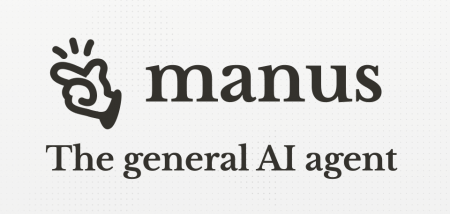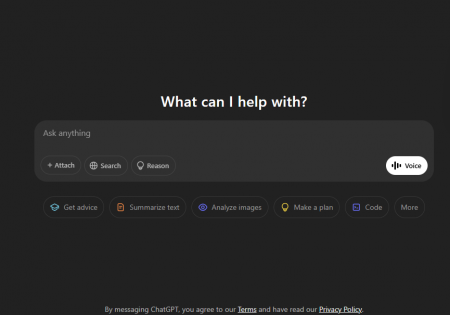Amazon, the tech titan that reshaped retail, is late to the AI party. Satyen K. Bordoloi delves into why a key pioneer of our tech-driven lives took its time on AI and chatbots, and wonders if it can catch up.
In a move that has surprised the tech world, Amazon, the e-commerce giant that revolutionized retail and reshaped how we interact with tech for over a quarter century, unveiled its own AI-powered shopping assistant. Called ‘Rufus’, you’ll find it on the extreme right bottom corner of your Amazon app. The astonishment was because this chatbot, still in its beta and named after a corgi, marks Amazon’s entry into a field where many of its competitors have long been established players. This has the world asking Amazon: what took you so long?

The Waiting Game – Amazon’s Chatbot Strategy: While everyone – from big tech giants to little companies, rushed to launch chatbots, either their own or outsourced, Amazon seems to have taken a more measured approach. This strategy puzzled observers. The reasons are hard to comprehend, but easy to speculate.
Amazon had one of the world’s first voice bots in Alexa. Launched in 2014 as Amazon’s voice-activated assistant, Alexa became a cornerstone of Amazon’s AI strategy, powering various smart home devices and integrating with the company’s e-commerce platform. Amazon invested heavily in developing Alexa’s capabilities, prioritising voice-based interactions over text-based chatbots. The only problem – as most of us realized – Alexa could do frustratingly little.
Then there was Amazon’s existing strength in product recommendations. The company’s sophisticated algorithms, refined over years of e-commerce dominance, were already adept at guiding customers to relevant products. Perhaps this reduced the immediate need for a conversational AI interface for shopping assistance.
Jeff Bezos, Amazon’s founder, has often emphasized the company’s focus on long-term value creation over short-term trends. Perhaps this customer-centric approach meant the company was unwilling to launch a chatbot until it could offer a truly superior experience and likely contributed to the measured pace of chatbot development.

Speculation is also on Amazon’s vast ecosystem comprising millions of products, a labyrinth of sellers, and a palette of services ranging from cloud computing to streaming. Maybe creating an AI assistant capable of navigating this intricate web was a challenge. But one can’t help but wonder: isn’t complexity Amazon’s bread and butter? This is a company that orchestrates same-day deliveries across cities and manages a cloud infrastructure that powers a significant portion of the internet. The argument that complexity slowed them down seems at odds with their track record of taming chaos.
Alexa: The Voice That Echoed Too Long: Amazon’s fixation on Alexa as their AI flagship might have blinded them to the shifting tides of user preference. While voice assistants have their place, the surge in popularity of text-based AI chatbots like ChatGPT demonstrated a clear market demand that Amazon seemed slow to recognize. The company’s insistence on pushing Alexa as the primary interface for AI interactions without empowering its capabilities now appears short-sighted, especially given the limitations of voice-only interactions for complex queries or in public spaces. Even a text-first approach to a chatbot via Alexa could have helped Amazon.

The Recommendation Engine That Couldn’t: Amazon has long prided itself on its product recommendation algorithms. These systems, honed over years of e-commerce dominance, have been our digital age’s silent salespeople. However, the rise of Gen AI revealed a gap in Amazon’s arsenal. While recommendations are useful, they lack the nuanced understanding and interactive capabilities of a well-designed chatbot. Amazon’s reliance on its existing systems may have created a false sense of security, leading to complacency in the face of rapidly evolving AI tech.
The Customer-Centric Paradox: Jeff Bezos’s mantra of customer obsession has been a driving force behind Amazon’s success. However, the delayed entry into the chatbot arena raises questions about the company’s ability to anticipate and meet evolving customer needs. In an era where consumers increasingly expect personalized, conversational interactions with brands, Amazon’s absence from this space seems at odds with its customer-first philosophy. One might argue that true customer centricity would have pushed Amazon to be at the forefront of this technology, not playing catch-up.
The Ghost of Innovations Past: Amazon’s history is dotted with both groundbreaking successes and notable failures. The Kindle revolutionized reading, while the Fire Phone fizzled spectacularly. This mixed track record in hardware and software innovation might have contributed to a more cautious approach to AI chatbots. However, in the fast-paced world of tech, caution can lead to hesitation or hubris that can prove costly.
Rufus – A Dog’s Tale or a Strategic Masterstroke: The choice to name the chatbot after a beloved office corgi is undeniably charming. It humanizes the technology and creates an instant connection with users. But beneath this cuddly exterior rests a crucial question: Is Rufus truly innovative, or is it merely Amazon playing catch-up in a cutesy disguise?
Early reviews of Rufus have been mixed. While some users praise its deep integration with Amazon’s vast product catalogue, others point out that it lacks the general knowledge capabilities of more established AI chatbots. This specialized focus might be by design, but also highlights the narrower scope of Amazon’s AI ambitions compared to its competitors.

The Data Dilemma: One can’t discuss AI without addressing the elephant in the room: data. Amazon sits on a treasure trove of consumer data, from purchase history to browsing patterns. This data advantage should have positioned them to create a superior AI chatbot early in the game. The fact that they didn’t raises questions about their data strategy and their ability to leverage this invaluable resource effectively.
Amazon’s Catchup – Metis: Business Insider revealed in June that Amazon was developing an AI chatbot named Metis, aiming to rival OpenAI’s ChatGPT. Named after the Greek Goddess of wisdom, Metis is designed to function as a web browser, providing multimodal responses in both text and image formats. It will offer up-to-date answers, suggest follow-up queries, and include links to sources, enhancing its utility beyond typical chatbots. Metis is also expected to act as an AI agent i.e. what I call PAI or personal AI assistant – capable of automating tasks like booking flights or controlling smart home devices. This project, powered by Amazon’s advanced AI model Olympus, seems to signify the company’s strategic push to catch up in the competitive AI landscape. But is it too late already and are Rufus and Metis merely wisdom’s bark up the wrong tree?

The Future – Fashionably Late or Missing the Party: As Rufus rolls out to Amazon users worldwide (it launched in India end of August, but I could see it on my phone only from 13 September), the real test begins. Will this late entrant redefine the e-commerce experience, or will it be seen as a me-too product in an already crowded market? Amazon’s vast resources and deep understanding of consumer behaviour give Rufus a fighting chance. However, the company’s late start means they’re facing an uphill battle against more established and versatile AI assistants.
The success of Rufus will depend not just on its capabilities, but on Amazon’s ability to integrate it seamlessly into the shopping experience. If Rufus can truly enhance the way people discover and purchase products, it could yet prove to be a game-changer. But if it’s perceived as just another chat interface tacked onto the existing Amazon experience, it risks becoming another footnote in the company’s history of hit-or-miss innovations.
To be fair though, it’s not just Amazon that missed the AI-rocket. Even Apple and Meta are playing catchup. While Apple has tied up with OpenAI, Meta plans to battle them. If Metis is truly happening, it’ll mean Amazon is joining the party, albeit late, and that Rufus is just a sideshow.
Whatever the case, one cannot write off the company that revolutionized global shopping. They might find themselves in the unfamiliar position of follower rather than a leader in a critical technological arena, Amazon might just amaze the world once more with its AI.
In case you missed:
- Kodak Moment: How Apple, Amazon, Meta, Microsoft Missed the AI Boat, Playing Catch-Up
- Nuclear Power: Tech Giants’ Desperate Gamble for AI
- A Teen Suicide Spotlights Dangers of Unregulated AI Companions
- The Rise of Personal AI Assistants: Jarvis to ‘Agent Smith’
- Apple Intelligence – Steve Jobs’ Company Finally Bites the AI Apple
- Is Cloud Computing Headed for Rough Weather
- PSEUDO AI: Hilarious Ways Humans Pretend to be AI to Fool You
- Generative AI With Memory: Boosting Personal Assistants & Advertising
- Google Falters Under AI Onslaught: Future of Search in Peril?
- When AI Meets Metal: How the Marriage of AI & Robotics Will Change the World









